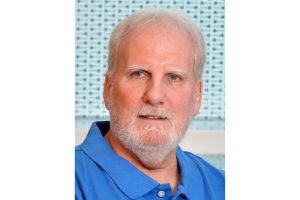
Martin (Maish) Yarmush, MD, PhD
Paul & Mary Monroe Endowed Chair & Distinguished Professor of Biomedical Engineering
Rutgers, The State University of New Jersey
Director, Center for Engineering in Medicine and Surgery
Massachusetts General Hospital/Harvard Medical School
Senior Scientist
Shriners Children’s, Boston
Title:
AN AUTONOMOUS IMAGE-GUIDED ROBOTIC SYSTEM FOR VASCULAR ACCESS
Abstract:
In this presentation, I will describe a first-of-its-kind innovative assistive technology for vascular access in venipuncture and several other applications. The innovative imaging and robotic aspects of this technology aims to reduce the number of missed sticks/human error and reduce technician/nurse workload and foster better patient care. We have developed two separate prototypes: a so-called benchtop device, and a handheld device. The bench top model Called VenousProTM is a 9-degree-of-freedom NIR/US-assisted robotic system to autonomously puncture a target vessel in order to withdraw blood. The patient rests their arm in a designed sleeve and the blood draw is completed in under a minute. The second device, named Venibot, utilizes a combination of ultrasound imaging, miniaturized robotics, and machine learning to gain venous access safely and efficiently for performing both blood draws and intravenous catheter placements. The device is designed for hand-held use and is manually positioned over the insertion site by a clinician, wherein the device then handles the tasks of both finding the vessel and accurately guiding the attached needle toward the target vessel center.
Bio:
Professor Martin L. Yarmush is an internationally recognized bioengineer and translational scientist who has been a leader in the fields of tissue engineering and regenerative medicine, BioMEMS and nanotechnology, applied immunology and biotechnology, metabolic engineering and biopresevation, and medical device development. Professor Yarmush currently serves as the Paul and Mary Monroe Endowed Chair and Distinguished Professor of Biomedical Engineering at Rutgers, and the Director of the Center for Engineering in Medicine at the Massachusetts General Hospital/Harvard Medical School (MGH/HMS). He also directs the NIH supported Rutgers University T32 Predoctoral Training Program in Biotechnology which is in its 35th year of continuous funding. Dr. Yarmush received his BA degree (summa cum laude) in Biology/Chemistry at Yeshiva University and conducted PhD work in Biophysical Chemistry at The Rockefeller University in the laboratories of Drs. Thomas Kindt, Richard Krause, and Maclyn McCarty. He spent a postdoctoral year at the NIH in the Laboratory of Immunochemistry and Immunogenetics before going to Yale University for his MD degree. After three years at Yale, he entered the PhD program in Chemical Engineering at MIT, where he completed all requirements for a PhD degree in Chemical Engineering excluding thesis submission. In 1984, he joined the MIT Chemical Engineering department as a Principal Research Associate (Associate Research Professor), where he established several interdisciplinary research programs in applied immunology, bioseparations, and tissue engineering. In 1988, Dr. Yarmush joined Rutgers, where he: 1) founded and directed the NIH‐supported Rutgers‐UMDNJ PhD Training Program in Biotechnology, 2) founded and directed the New Jersey Center for Biomaterials and Medical Devices, and 3) held the positions of Professor, Professor II, Graduate Director, and Deputy Chair of Chemical and Biochemical Engineering. In 1995, he was recruited to Harvard and MGH to hold the Helen Andrus Benedict Chair in Surgery and Bioengineering in the Harvard‐MIT Division of Health Science and Technology, and to found and direct the Center for Engineering in Medicine and Surgery at the Harvard Medical School Teaching Hospitals. Over the last 40 years, Dr. Yarmush has: 1) published >580 refereed journal articles and >60 patents & patent applications; 2) mentored >65 graduate students and >140 postdoctoral fellows; and 3) taught a spectrum of courses from molecular genetics, biochemistry, cell biology, and immunology, to thermodynamics, tissue engineering, and transport phenomena, to advanced biotechnology and innovation and entrepreneurship. More than 80 of his former fellows have gone on to successful careers in academia both here and abroad, and many others have gone on to become leaders in the biotechnology and medical device industries. In addition to his teaching and research achievements, Dr. Yarmush has contributed to the advancement of science and engineering through service as: (1) a member of NIH, NSF, FDA, and Office of Technology Assessment review panels; (2) an advisory board member for foundations (e.g. the Whitaker Foundation, Juvenile Diabetes Foundation, and Doris Duke Foundation), academic‐based centers, and industrial firms; and 3) an editor of numerous science and engineering journals, including the Annual Review of Biomedical Engineering which he founded in 1999. Professor Yarmush is a frequent invited keynote speaker at major conferences and institutions, and the recipient of >30 local and national awards including Founding Fellow of AIMBE, Fellow of BMES, Fellow of the US National Academy of Inventors, and Fellow of the US National Academy of Engineering. He has been credited with many pioneering scientific and technological advances including innovative cell culture systems and tissue engineering constructs, stem cell therapies, dynamic cell and tissue microsystems, pulsed electric field therapies, venous access devices, bioartificial organs development, targeted therapies for tumors and infections, recombinant protein purification techniques, and recombinant retrovirus production and purification techniques. Some of these developments have resulted in patents and the formation of companies based on these advances. In one recent example, Molecmo (which became Novira) focusing on novel antiviral drugs for Hepatitis B was acquired by J&J in late 2015 for $600M.
10:30am, Shaffer 3